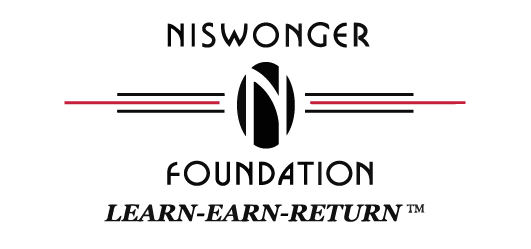Niswonger Foundation’s Federal Grant Set To Impact Region’s Literacy Development
Students in grades six through eight, across 14 Northeast Tennessee school systems, are beginning to experience the benefits of the Niswonger Foundation’s Rural LIFE program after a year of strategic planning and implementation.
Rural LIFE (Literacy Initiative Focused on Effectiveness) is designed to improve literacy for middle school students in eighteen Northeast Tennessee school systems. The grant serves approximately 19,700 students and is funded through an $8 million-dollar Education Innovation and Research federal grant awarded to the Niswonger Foundation by the U.S. Department of Education.
“That literacy component is so empowering in all the subjects that children are involved in,” said Rural LIFE Coach Sarah Kitzmiller. “Improvement of students’ quality of life is the ultimate goal for all of us here.”
The program aims to implement technology-enabled and literacy-focused personalized learning for students to help improve their academic performance in all subjects. This includes: strengthening literacy development across the content areas; literacy intervention for struggling readers and writers; implementing school policies, structures and culture for supporting literacy; building leadership capacity and helping teachers to improve instruction.
A primary focus of the program is personalized learning. Each school has developed a plan specific to the student needs, and the funding provides additional resources to accomplish those goals.
“If you’re going to maximize literacy instruction, you need to personalize it a little bit,” stated Dr. Richard Kitzmiller, Niswonger Foundation vice president and the grant’s executive director.
Part of personalized learning is restructuring regular, whole-classroom teaching to incorporate small group settings, more technology-based learning and afterschool supplementation. Personalized learning settings cater to students’ individual needs and learning styles.
To date, schools have used Rural LIFE funding to purchase educational subscriptions, classroom libraries and online resources, as well as, technology like Google Chromebooks and NOOK tablets for digital reading.
Rural LIFE’s nine Coaches support school-created literacy plans and work with principals and teachers toward specific goals. These Coaches visit the schools one day a week to assess progress and help with implementation. Each school selected at least one lead teacher who acts as a contact with a Rural LIFE Coach.
“Obviously, we want to see greater outcomes for students,” Rural LIFE Coach Ben Willings said. “One thing that has been really personal for me is thinking about not just teaching students to read but really teaching students to want to read. We want to cultivate that love for reading as a way for building knowledge, as a way for interacting with the world.”
The grant will be used over the course of five years. The first year saw planning and implementation in 36 of the 72 schools benefitting from the program. Now, in the second year, schools will evaluate what works best for students to improve literacy. In the fourth and fifth years, the remaining 36 schools will join in the implementation of the program. The majority of the 73 schools in this project are designated rural, and 85% are Title I school-wide.
Ongoing research and data collection through test score analysis, observations, surveys and interviews by research partner ANLAR will evaluate the success of Rural LIFE as well as areas for improvement. Additionally, the Friday Institute, at North Carolina State University, is assisting with coaches’ training and providing additional resources.
The federal grant was awarded to only 16 organizations out of 379 proposals for funding from across the country. Commenting on the receipt of this grant, Niswonger Foundation president and CEO, Dr. Nancy Dishner stated, “We are uniquely positioned to receive national attention because our region’s educators have an extraordinary commitment to teamwork, excellence, and ensuring that every child in Northeast Tennessee has the best opportunity for success.”
Schools benefitting from the grant in Northeast Tennessee include: Carter County: Central Elementary, Cloudland, Keenburg; Elizabethon City’s, T.A. Dugger Junior High as well as Sullivan County: Holston Middle, Sullivan North; Bristol City’s, Vance Middle School; Kingsport City’s, John Sevier Middle and Ross N. Robinson Middle. Johnson City’s Liberty Bell Middle School along with Washington County’s Boones Creek Middle School, Fall Branch Elementary and Sulphur Springs Elementary are participating. Additionally, Greeneville City Middle School and Greene County’s: Camp Creek Elementary, Nolachuckey Elementary and West Pines Elementary are included. Hawkins County schools working with the Rural LIFE grant are: Bulls Gap, Church Hill Middle School, Clinch School, East Ridge Middle School; Surgoinsville Middle and Rogersville Middle School. Jefferson County has two schools involved: Maury Middle School and Rush Strong Elementary, while Cocke County schools include: Bridgeport Elementary, Centerview Elementary, Cosby Elementary, Edgemont Elementary, Grassy Fork Elementary, Northwest Elementary and Smokey Mountain Elementary. Participating in Sevierville are Sevierville Middle School and Pittman-Center Elementary, with Hancock County High School and Unicoi County Middle School representing these respective counties.
